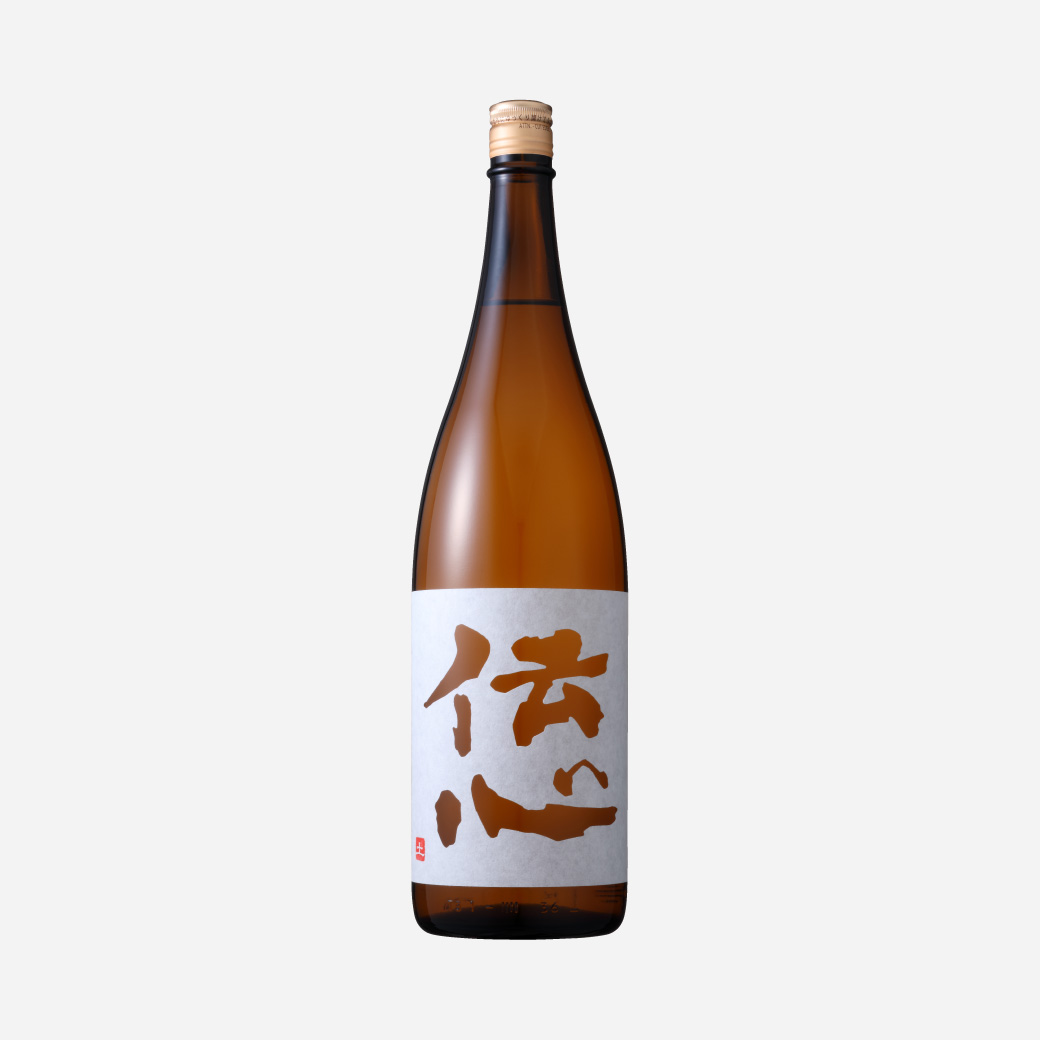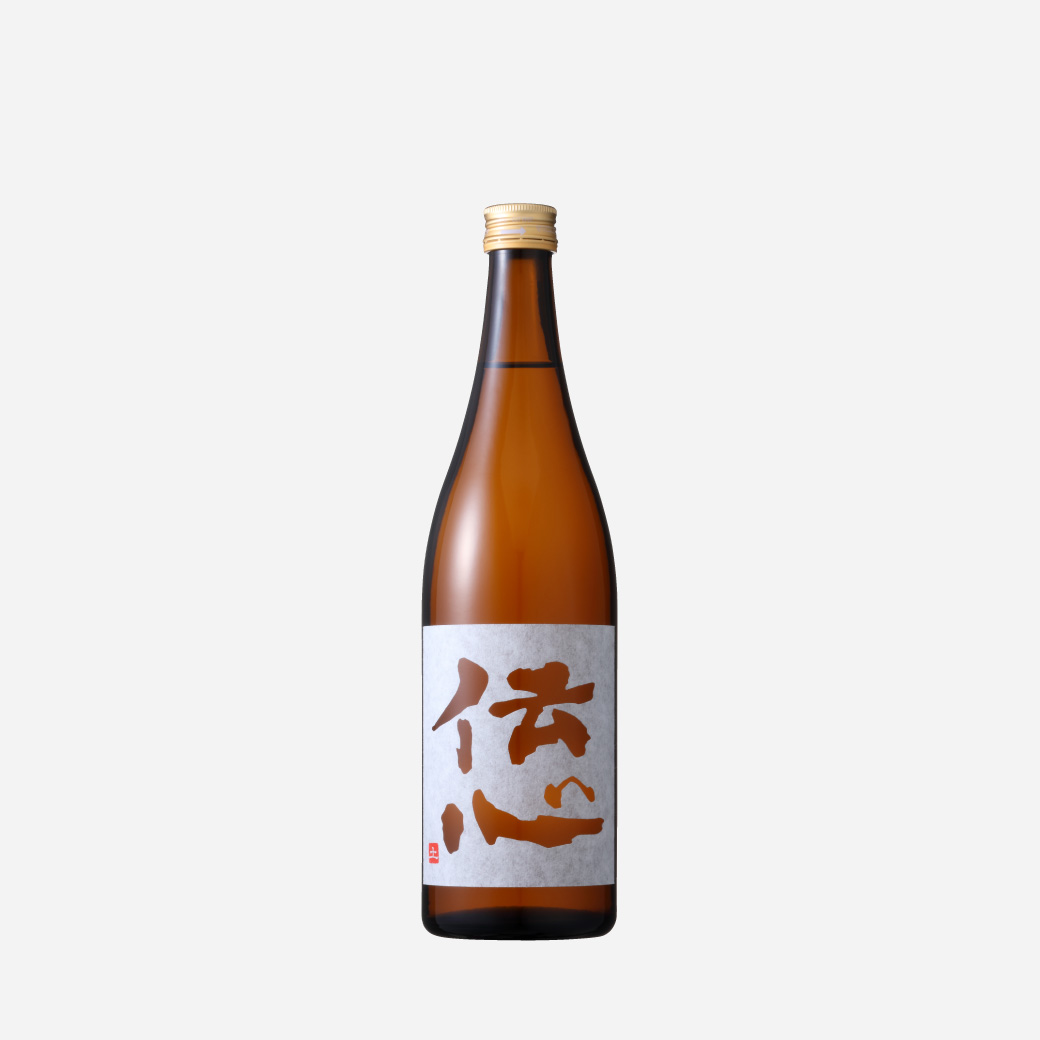[TSUCHI] earthGohyakumangoku × the 'Hashira Shochu Shikomi' method
The initial impression is of a gentle, soft, sweet aroma, like that of a pancake, with a hint of mandarin-like aroma.
The mouthfeel is light and smooth, enveloping the tongue, followed by the classic Ippongi crisp finish and capped off by a refreshing sensation on the palate.
Denshin Tsuchi is a fortified-styled sake. We use homemade authentic rice shochu, which is made with distilling sake as the additive alcohol. It is a new take on a traditional recipe (Hashira Shochu Shikomi) from the early Edo period and the birth of a very particular sake.
It is to pursue a flavor unique to the Okuechizen area and to have you enjoy the 'lightness' of the sake that is only possible with ‘alcohol added’ in a more positive way.
For food pairing, you must try it with deep-fried foods. When warmed, this sake develops an exceptionally rounded mouthfeel, making it even better with oily dishes as it rounds off both flavors. It also melds beautifully with oily fish dishes like yellowtail or fatty tuna.
Traditional alcohol adding method
‘Hashira Shochu Shikomi’.
Records in the Domo Shuzoki, a brewing manual written early in the Edo Period (1603-1867), show that Japanese brewers have added alcohol (mainly shochu, Japan’s traditional distilled spirit) to the sake mash for centuries. This method is called ‘Hashira Shochu Shikomi.’
Adding alcohol has many benefits, such as stabilizing the sake, creating lighter aromas and flavors, and integrating the flavor profile.
About 80% of sake currently produced in Japan is added-alcohol-style sake. In most cases, the brewing alcohol used for it is pure alcohol made from sugar cane (molasses), which is distilled in a column still to around 95% ABV.
In recent years, we feel that there is a negative image of sake that has been fortified with alcohol, compared to the positive image of junmai-type sake. One reason for this is that the ‘brewing alcohol’ commonly used to fortify sake is made using sugarcane (molasses) as the main ingredient rather than rice.
We wonder if it is possible to enjoy the ‘light texture’ of sake made with added alcohol, which is different from the full-bodied junmai-type sake, in a positive way.
Therefore, from 2016, we decided to make our own rice alcohol for ‘Denshin Tsuchi’ and from 2025, in order to pursue a flavor that is more unique to Okuechizen, we started to use our in-house pot still authentic rice shochu as the added alcohol instead of the pure alcohol made from sugar cane.
This makes our Denshin Tsuchi a very unique product. So Tsuchi is essentially made with 100% local ingredients and by an Edo Period method, ‘Hashira Shochu Shikomi.’
We hope Tsuchi will lead you to rediscover the attraction of this traditional style of sake.
Award-WinningInternational Wine Challenge
(Silver once)
Slow Food Japan Kan Sake Award
(Grand Gold once / Gold 4 times)
Category :Futsu-shu
Rice : Gohyakumangoku
Rice Polishing Ratio : 65%
Alcohol : 16% by vol.
Recommended temperature
Chilled5-10°C
(41-50°F)
Cool10-15°C
(50-59°F)
Room
temperature
Nuru-kanaround 40°C
(104°F)
Jo-kanaround 45°C
(113°F)
Atsu-kanaround 50°C
(122°F)


